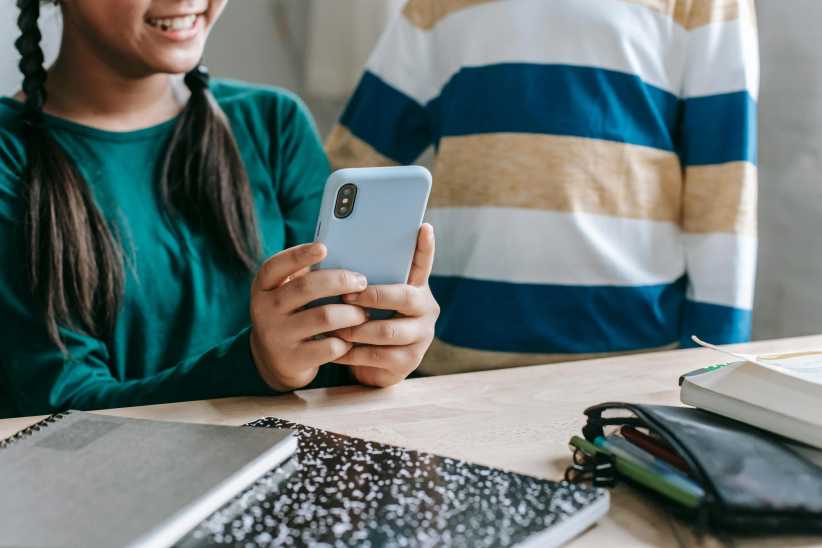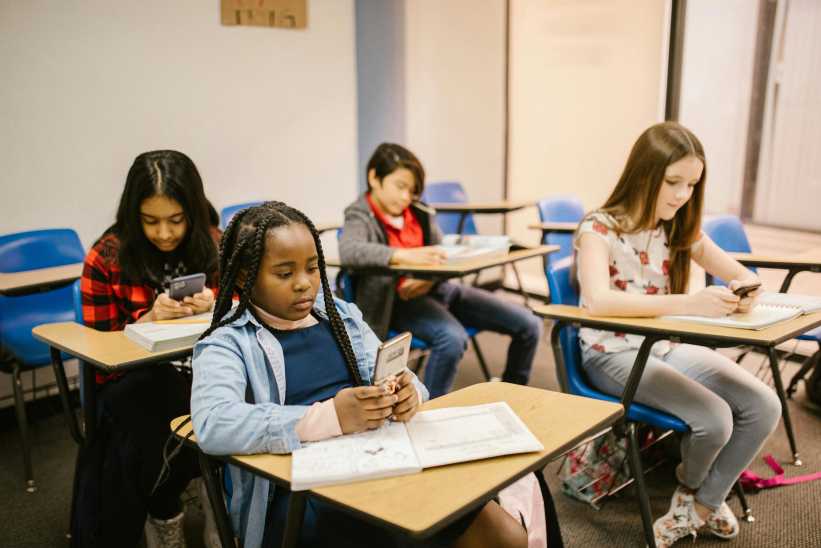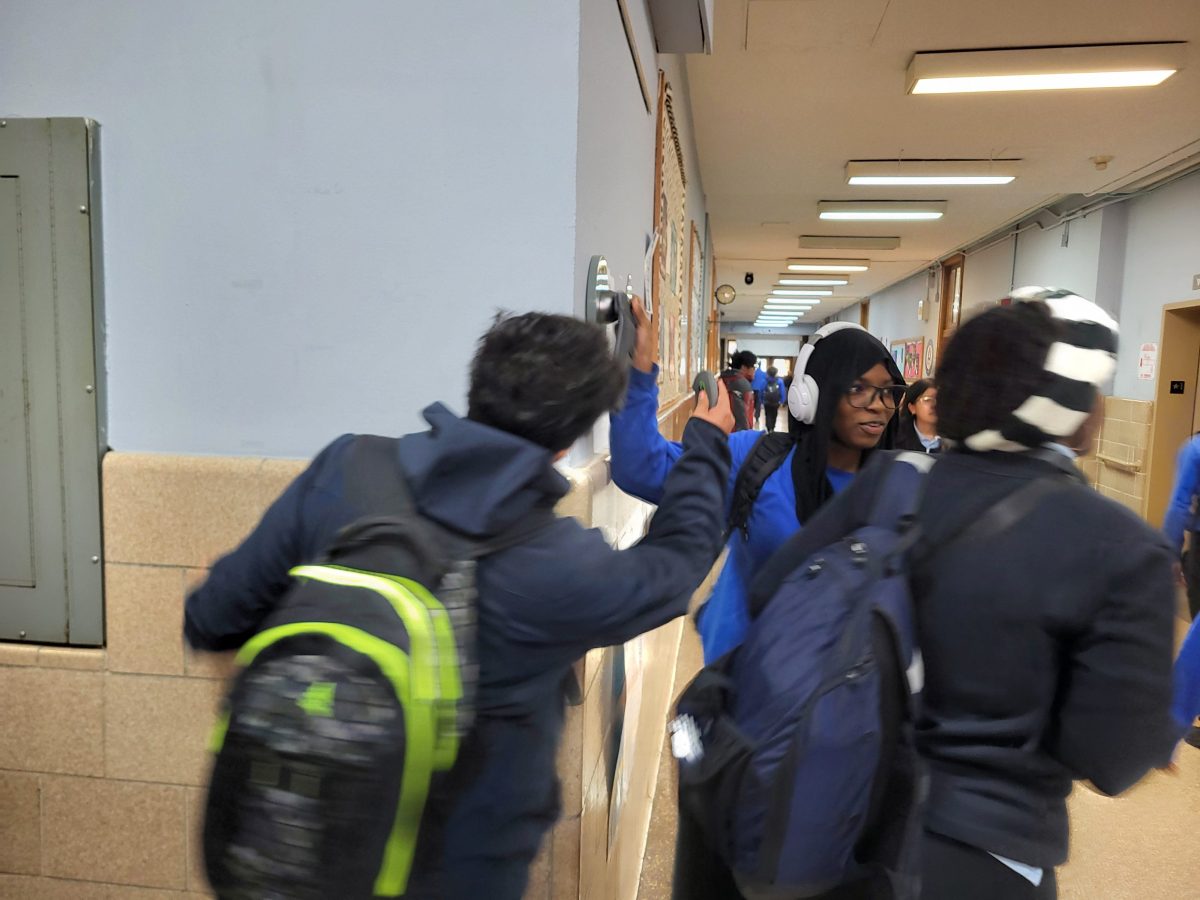
What You Need to Know About Governor Kathy Hochul’s School Cell Phone Ban
The cell phone ban will go into effect this fall at all New York schools.
New York City schools are finalizing their plans for the upcoming cell phone ban, proposed by New York Governor Kathy Hochul.
The August 1st deadline requires schools to have a comprehensive bell-to-bell plan for when students return to class in the fall. The ban prohibits the use of smartphones or other internet-enabled devices in grades K through 12. This also includes periods when students are not learning, such as lunch or recess.
Psst… Check Out Moms, Are You Getting the Right Health Screenings? Find Out What You Need at Every Age
“Our young people succeed when they’re learning and growing, not clicking and scrolling – and that’s why New York will be ready to implement bell-to-bell smartphone restrictions on the first day of school,” Hochul said during a recent roundtable. “I’m pleased that most school districts across the state have either already implemented or are finalizing their distraction-free policy – and my team continues to provide the resources and tools to ensure every district publishes their policy by the Aug. 1 deadline.”
The bill, which originally received pushback from former New York City Schools Chancellor David Banks, is part of a larger initiative to reduce distractions in the classroom.
The bill is research-backed and designed to stop distractions. Hochul’s research, “More Learning, Less Scrolling: Creating Distraction-Free Schools,” found that smartphones distract students and inhibit learning and creativity. It also found that schools can strengthen their distraction-free environment by connecting more students with in-person engagement like clubs, sports, arts, and other programming.
The bill has received praise from many elected officials, including New York City Public Schools Chancellor Melissa Aviles-Ramos.
“As New York City Public Schools works to develop an updated cell phone policy for our schools, one thing has been clear: we must remain guided by the diverse needs and input of our school communities, union partners, elected officials, school staff, and most importantly, our students,” said Ramos. “Today’s roundtable gives us a chance to engage with these stakeholders in a public forum, hear their feedback, and discuss this policy as it’s developed. I am grateful to our participants for sharing their thoughts and to Mayor Eric Adams for making the investments necessary to lead our students into the future.”
Studies from the National Library of Medicine showed that spending more than a few hours per week using electronic media correlated negatively with self-reported happiness, life satisfaction, and self-esteem within teens, compared to non-screen activities (in-person social interactions, sports or exercise, homework, etc.) correlated positively with psychological well-being.
“As Chief of Safety and Prevention Partnerships at New York City Public Schools, I have seen firsthand the impact student cell phone use in our schools can have on not just their mental health, but their physical safety as well,” said New York City Public Schools Chief of Safety and Prevention Partnerships Mark Rampersant. “I’ve also seen the impact that cell phone collection has on culture and climate in schools – increased engagement between students, better mental health outcomes, and more focused classrooms. By crafting policy in partnership with our community, as demonstrated today, we are working together to build a safer and healthier school experience for our kids.”
The ban is also designed to set certain standards into place across city schools, including:
- Allowing schools to develop their own plans for storing smartphones during the day, giving administrators and teachers the flexibility to do what works best for their buildings and students
- Securing $13.5 million in funding to be made available for schools that need assistance in purchasing storage solutions to help them go distraction-free
- Requiring schools to give parents a way to contact their kids during the day when necessary
- Requiring teachers, parents and students to be consulted in developing the local policy
- Preventing inequitable discipline
The ban will take effect starting in September of the 2025-2026 school year.
Psst… Check Out A Guide to NYC Pediatric Hospitals














